- Home
- Tony Parsons
Return to Moondilla Page 3
Return to Moondilla Read online
Page 3
‘You’re concerned about my welfare?’
‘No, you ninny. I’m concerned about what you might do to Jack.’
He tried to look humble, but knew he’d failed when she grinned.
‘Anyone else?’ he asked.
‘There’s a Senior Sergeant Cross. Did you meet him at the accident today?’
Baxter shook his head.
‘Well, Cross has been here a fair while, and the rumour is that he’s bent.’
Baxter cocked an eyebrow. ‘Bent in what way?’
Julie’s voice lowered even more, and Baxter leaned forward to listen. ‘It’s said that he’s hand in glove with some of the big drug suppliers.’
‘Drug suppliers in Moondilla?’ he asked harshly.
The discovery of the woman’s body had worried Baxter, but he hadn’t really believed that the town had fallen so low. Albert Garland would have been horrified.
Baxter’s face hardened and his eyes bored into Julie, who looked a little scared. She gestured for him to calm down, and he glanced around, realising that the couple at the table next to them were staring. He made an effort to relax, and Julie kept talking in her soft voice.
‘You know we’ve always had drugs here—’
‘But only in a low-key kind of way.’
‘Yes, that’s true.’ Her mouth was drawn tight, and he realised she might be thinking of her brother. ‘Now there seems little doubt that drugs are being landed here from the sea and then sent on to Sydney and Melbourne. The locals are reluctant to talk about it—they remember what happened to Donald Mackay in Griffith.’
Baxter shook his head. ‘I hate the whole drug scene, Julie,’ he said bleakly. ‘I knew people who got hooked on drugs. Someone who died. It’s what I’m writing about. I hate drugs and I hate the people pushing them.’ It was a huge effort to keep his voice down. ‘As far as I’m concerned, anyone who pushes drugs is a complete mongrel, the lowest kind of person on this earth. It’s a rotten business.’
‘I agree. Drugs and alcohol have a lot to answer for. My brother’s death, for one.’
Baxter nodded, wishing there was something he could do or say to comfort her.
‘And now,’ she added, a quaver in her voice, ‘it’s my job to deal with the consequences of those things every week of my life.’
They’d finished their coffee and Baxter wasn’t sure what else to say—just that he wanted to see her again. But now, after everything she’d told him, and with the new weight on his mind, it was difficult to ask.
He was relieved when she beat him to the pleasantries. ‘It’s really good seeing you again, Greg,’ she said, making an effort to smile. ‘It gave me a shock seeing you sitting there. I hope you have a very pleasant sojourn in Moondilla, despite its problems.’
‘Thanks, I plan on being here quite a while.’ This was his chance. ‘I hope you’ll come out and see me—I’ll cook you a decent fish meal.’
He’d hoped he sounded casual enough, but Julie raised her eyebrows and said sharply, ‘You should know that I’m not looking for a relationship.’
‘Who said anything about a relationship? I didn’t have that in mind.’
But the barriers were up. ‘Men always have that in mind.’
‘Look, it’s a very agreeable spot, and you can fish off my jetty if you’d like. Or we can go out on the small runabout I bought with the place. She’s named the Flora Jane after old Harry’s grandma.’
It was the right thing to say. Julie’s face softened, and she looked a little embarrassed, colour rising in her cheeks. ‘Sorry, Greg. That does sound lovely. My dad had a fishing boat too—an area of dispute between him and Mum.’ She swallowed. ‘When he died, she sold the boat.’
Baxter felt a surge of sympathy—Julie had certainly been through the ringer. ‘That’s a shame,’ he said. ‘Well, there you are, you can come and fish with me. I’ll bet you could teach me a lot.’
‘We’ll see.’ She got to her feet, a grin back on her face. ‘You get on home now, have a cup of tea and something to eat, and take a couple of those aspirin. And don’t be a bad patient. Take the antibiotics!’
‘Yes, Dr Rankin, whatever you say.’ He chuckled and glanced at his arm as he stood up. ‘And thanks for the embroidery. When I left for Moondilla, I didn’t imagine I’d be returning with a sample of your handiwork.’
CHAPTER FIVE
Baxter smiled to himself as he pulled up the driveway to his riverside home. He hadn’t been there long, but already he had a great fondness for the place. He’d never experienced any warm feelings towards the apartments he’d rented in Sydney. Riverview was different—it was beautiful, and it was his own.
He also had a great warmth for his mother, who’d helped him buy the property. Frances wouldn’t have done it if she’d disapproved—she was a shrewd businesswoman as well as a renowned chef—but the fact was that she liked Riverview and believed it was a good buy. Her trusted real estate valuer had assured her that the property was likely to appreciate greatly in the very near future. Sydney businesspeople were buying up South Coast land and either renovating farmhouses or building flash new homes, and some were commuting to and from the city by helicopter.
The Riverview house was getting long in the tooth, Frances had said, and might be best knocked down and replaced. But Baxter didn’t mind it. The lovely old building was on a slight rise, and its park-like surrounds were dotted with many varieties of shrubs and trees. There were bougainvillea vines and jacarandas, and two pergolas draped with mauve and white wisteria. The empty poultry yards and a large garage and storage shed were almost smothered by passion fruit and honeysuckle.
At the back of the house was a netted vegetable garden that still contained some of the many vegetables the last owner, Harry Carpenter, had lovingly tended into his old age. Silverbeet and rhubarb were still thriving, and there were drums holding parsley, mint and other herbs. How the Great Woman’s eyes had gleamed when she saw all these plants and a great bin of developing compost.
While the house wasn’t young, it was made of sturdy timber. Baxter didn’t want to do any major external work, at least for the moment, but he’d agreed with his mother that it would look better for a coat of paint and a few minor repairs.
As he’d said to Julie, there’d been a lot of internal work done, and the kitchen had been fully renovated at his mum’s insistence. She’d declared the old kitchen a disaster—quite unsuitable for the preparation of high-quality meals. She hadn’t yet seen the finished product, but Baxter was certain she wouldn’t be disappointed. A large new electric range had replaced the stove, and Baxter had added a gas-fired stove that could be utilised when there were electricity blackouts. These stoves, along with gleaming sinks, preparation tables and cupboards, had transformed the room.
A large verandah wrapped around the whole house. On the side facing the river, Baxter had placed one of the tables he’d brought from Sydney. He liked to sit there as the sun dipped behind the mountains to the west. Birds of many varieties flew up and down the river before roosting in the trees on both banks.
The atmosphere was so intoxicating for someone used to the hustle and bustle of Sydney as to threaten to drown his senses and seriously erode his hours of writing. The earlier mornings were, if anything, even headier, with life returning to the river as the sun came up over the great ocean to the east.
As Riverview’s name implied, it was the river that contributed the most to the property’s appeal. High grassy banks overlooked the tranquil water. Though smaller than some rivers along the NSW North Coast, it was still a considerable body of water and as changeable as life itself. Something was always happening on the river, even if it was only a fish jumping in an arc of flashing silver.
The river was tidal, of course, and still full of salt at Riverview, but it became brackish as it approached the mountains. Even so, old hands swore that they’d seen bull sharks some miles up from Baxter’s jetty, which seemed to dispose of the theory that the predators cou
ldn’t survive in anything but salt water.
These shark stories added some spice, tempered by caution, to Baxter’s view of the river. He didn’t go swimming from his jetty, and kept Chief out of the water too. The German Shepherd took a dim view about being landlocked; he liked to paddle after ducks, which he felt had no right to be swimming close to his jetty. Chastised for going in the river, Chief would lie at the jetty’s edge and stare malevolently at the ducks as they floated, indolent, on the gently moving water.
There was a world of difference between how Greg, as a young boy, had viewed the river, and how Baxter saw it now. But the river still answered all his questions and fulfilled the dreams he’d had of it.
•
Next morning Baxter got up at dawn as usual and went jogging with Chief. He talked to the German Shepherd just as if he were human—and Baxter was almost certain that Chief understood everything he said.
Baxter was on a high about Chief. He’d never owned a dog before, though he’d long wanted one. His lifestyle just hadn’t been conducive to dog ownership, but making the decision to buy a property with some acres had changed that.
Nearly two years ago, when he hadn’t yet found the time to start looking for the right place, one of his mother’s wealthy friends happened to import a pair of German Shepherds and breed a litter from the bitch. The dogs were intensively tested for hip dysplasia: a curse of the breed, initiated to some extent by show breeders selecting dogs for greater angulation. Once the pups were in the clear, Baxter had booked one and made his selection when they were about eight weeks old. He’d moved into an apartment with a courtyard where the growing pup had some space to roam.
Baxter’s decision to purchase a German Shepherd was no hit-or-miss judgement. He’d looked at all the major dog breeds before narrowing them down to three that stood out for general usefulness: the border collie, kelpie and German Shepherd. The third breed wasn’t ‘worky’ like the other two, but Baxter didn’t need a working-type dog. What he wanted was one with high intelligence and the ability to be taught—and one with a certain presence. The Labrador could certainly be taught, but didn’t fit his concept of what a dog should be, so it came down to kelpie versus shepherd.
Baxter could never forget the story his father had told him about Zoe the white German Shepherd, handled by the legendary police trainer Sergeant ‘Scotty’ Denholm. Zoe had been fitted with a special radio transmitter strapped to her back. From high in a stand at the Sydney Showground, Denholm had transmitted instructions to her on the oval below. This was the kind of temperament Baxter was looking for in a dog.
Now, with Chief fully grown and losing his puppyish nature, Baxter was delighted with his choice. The dog was noble in character and a great mate—and he was super smart. Nobody could get near the house without the shepherd letting Baxter know.
Chief was on the lookout for all kinds of intruder. A few days after moving in, Baxter had been sitting at his table on the verandah when he’d heard a low growl. He’d glanced up to see the hairs rise on Chief’s withers. The dog’s attention was focused on something across the lawn—a black snake, gliding towards the sanctuary of a clump of low shrubs.
Baxter couldn’t risk the snake taking up permanent residence and perhaps biting Chief, so he’d killed it with a shovel while the shepherd growled fiercely from behind him. It seemed Chief knew instinctively that snakes were bad medicine.
•
After breakfast, Baxter did a couple of hours’ research on drugs for his novel, and then took a cup of tea and a tomato sandwich out to the verandah. Chief, as usual, came and sat beside him. Baxter put down the cup and flexed his arm. It was still aching a little, despite the two aspirin he’d taken, but Julie’s stitches remained pristine.
As he sipped his tea, Baxter gazed at the river and thought, for the umpteenth time, how fortunate he’d been to acquire this property. It offered so much more than he could have purchased for the same money in—or anywhere near—Sydney. Sure, he didn’t have an ocean or harbour view, but to him the river was even better.
The river crept quite high at times, but the Carpenters had lived on the property for most of their long lives and the water had never even reached the verandah. That’s what old Harry had told the Baxters, and it was backed up by their solicitor. However, for some reason the old chap had wanted a quick sale and accepted less than the property’s market value. Frances had joked that the place must be haunted.
His belly full, Baxter decided to give the indoor work away for an hour or so. After what Julie had told him, reading about drugs was making him feel even worse than it usually did. He needed to take his mind off things, so he walked down to the jetty and baited two lines—one with dough and cotton wool, the other with a piece of mullet. Today he was after a flathead, the tastiest of the fish he’d caught so far; but he’d found he could make a first-class meal of almost any kind of fish, even yellow-eye mullet.
Baxter was still coming to grips with fishing. Until he’d moved back here, his only experiences with it had been watching his dad and Mr Garland. Now a whole new world was opening up for him. To identify his catches, he’d purchased a second-hand copy of Jack Pollard’s 950-page Complete Guide to Australian Fishing.
He’d caught a variety of fish close to the river’s mouth, but so far he hadn’t ventured out farther. He recognised that he didn’t have the expertise to handle a boat on the ocean, especially around the Islands. Not on his own, anyway.
Inside an hour he’d hooked a good-sized flathead and then a fish he hadn’t caught before. A perusal of Pollard’s book identified it as a King George whiting, arguably the most highly prized fish of southern Australian waters, and a variety that rarely travelled this far north. Baxter was chuffed about that—as a chef, the prospect of trying something new stirred his senses. He cleaned both fish and put them in his Esky.
He reckoned he’d have an hour at his desk before lunch, and had put in perhaps half an hour when Chief looked up at him and barked. He knew that bark. It was to warn him that a vehicle was coming up the track from the road.
CHAPTER SIX
Baxter got up and went out on the verandah, shielding his eyes against the sun to take a look at the vehicle. He didn’t get many callers and wasn’t expecting anyone today, but that didn’t mean anything in the country. You could get a Rawleigh’s rep any old time. People simply took it for granted that they’d be welcome. And they mostly were.
But because of what Julie had told him, Baxter was wary. This wasn’t a Rawleigh’s or any other kind of rep. The vehicle was a rather shabby, putty-coloured panel van. He’d noticed it—and its similarly shabby-looking male driver—at various places in the district since his arrival in Moondilla. The driver was a self-proclaimed artist, often to be observed painting at Main Beach.
When the van pulled up, the driver climbed out with a wave. He wasn’t a badly built bloke, but his appearance didn’t flatter him. His long fair hair was tied in a ponytail and his clothes had clearly never come in contact with an iron. Not only that, but the jeans were holey in places, and the shirt was mottled with splotches of different-coloured paint. There was a generous streak of blue down his left forearm.
‘G’day,’ he called with a wide smile, sounding a bit too familiar, as he walked up to the verandah. ‘Great afternoon, isn’t it?’
Baxter was cautiously polite. ‘It certainly is. How can I help you?’
‘I’ve been talking to Dr Rankin. She told me you were here. How’s the arm?’
Why had a bloke like this been talking to Julie? And it seemed she’d broken doctor–patient confidentiality: that didn’t sound like her. Baxter tensed. ‘It’s still a bit sore, but not too bad. So you know Dr Rankin?’
‘Only professionally, champ. I’m Ian Latham.’ He held out a paint-stained hand, but Baxter didn’t shake it, so he shrugged and gestured to Chief, whose hackles were raised. ‘That’s a great-looking shepherd.’ And in the next breath. ‘Could we have a yarn?’
&nb
sp; ‘Sorry, I’m writing right now. Or trying to. Is it important?’
‘Dr Rankin suggested I should meet with you. She considered it important. You’d trust her judgement, wouldn’t you?’
Baxter had to agree that he would, although he was still worried she’d been coerced somehow. ‘Did she? You’d better come in. Fancy a drink of something . . . tea or coffee?’
‘Coffee, if it’s not too much trouble. Tea, if it is.’
Baxter sat his visitor down in the lounge room, handed him a fishing journal and went to make coffee. Chief lay in the doorway and watched Latham with unblinking interest: the paint smells on this new human’s clothes were an interesting development.
When Baxter came back with two steaming mugs, he took a seat opposite Latham, and Chief came to lie at his feet.
‘The thing is,’ Latham began, ‘I’m not really an artist.’
Alarmed, Baxter tensed again, and Latham hurried to reassure him.
‘Well, I am, but it’s not my occupation, just a hobby.’ He smiled disarmingly. ‘I’m a detective sergeant with the drug squad, and right now I’m working undercover. I don’t carry identification for obvious reasons.’
Allowing himself to relax a little, Baxter said, ‘I see. And what are you doing in this area?’ He’d keep what Julie had told him up his sleeve until he learned what it was that Latham wanted. Play a bit dumb. Plus, given what she’d said about Senior Sergeant Cross, Baxter needed to be as sure as possible that the man could be trusted.
‘As you’re probably aware, drugs are coming into Australia in many different ways and at many different places. We reckon that some have come in through Moondilla, and we’re fairly certain more will be landed here very soon.’
‘You know that for a fact?’ Baxter asked, a chill in his voice. Chief lifted his head.
‘We’re as sure as we can be. Most of the attention has been on the North Coast and Queensland, but some of the rotten stuff has come in down here.’
This was exactly what Baxter didn’t want to hear: Moondilla still looked idyllic, but it was tainted. And this was the place that Mr Garland had been proud to call home.

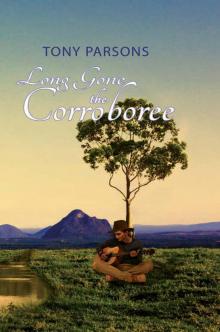 Long Gone the Corroboree
Long Gone the Corroboree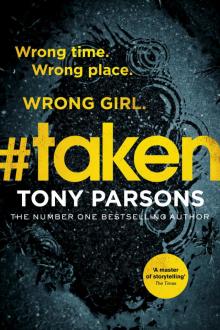 #taken
#taken The Family Way
The Family Way One For My Baby
One For My Baby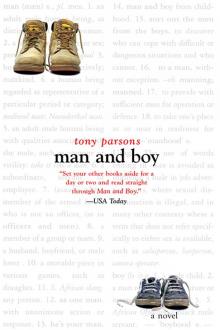 Man and Boy
Man and Boy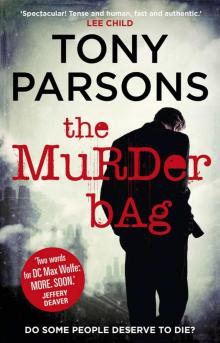 The Murder Bag
The Murder Bag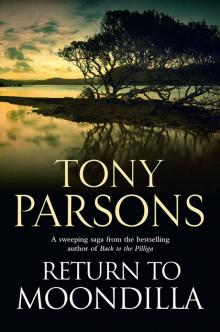 Return to Moondilla
Return to Moondilla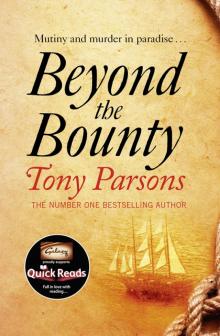 Beyond the Bounty
Beyond the Bounty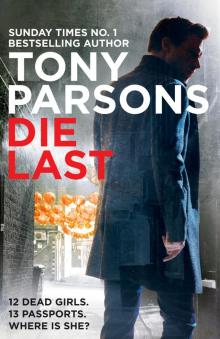 Die Last
Die Last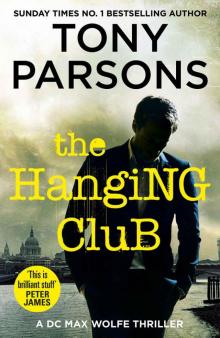 The Hanging Club (DC Max Wolfe)
The Hanging Club (DC Max Wolfe)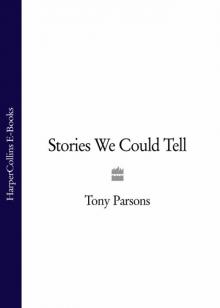 Stories We Could Tell
Stories We Could Tell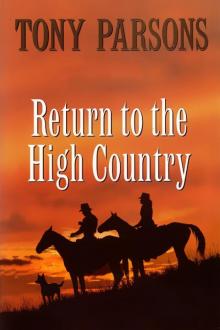 Return to the High Country
Return to the High Country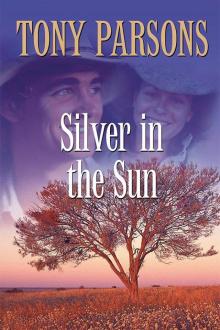 Silver in the Sun
Silver in the Sun My Favourite Wife
My Favourite Wife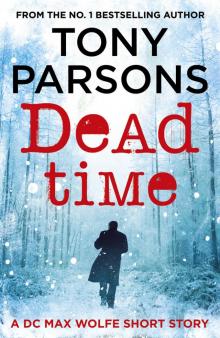 Dead Time
Dead Time Girl On Fire
Girl On Fire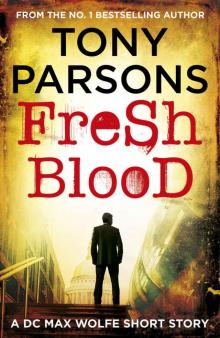 Max Wolfe 02.5 - Fresh Blood
Max Wolfe 02.5 - Fresh Blood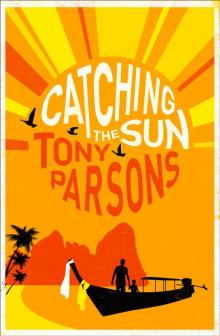 Catching the Sun
Catching the Sun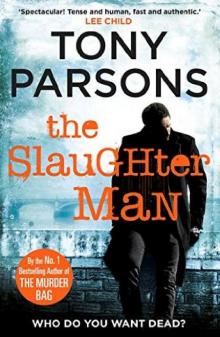 The Slaughter Man
The Slaughter Man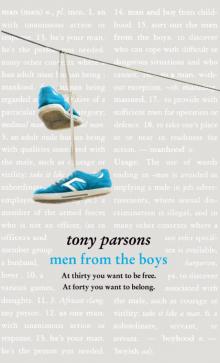 Men from the Boys
Men from the Boys Man and Wife
Man and Wife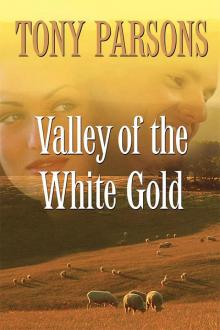 Valley of the White Gold
Valley of the White Gold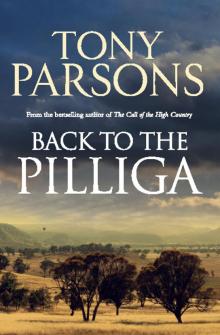 Back to the Pilliga
Back to the Pilliga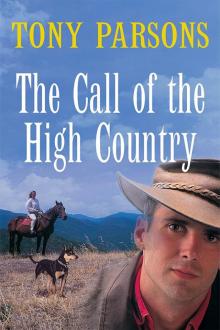 The Call of the High Country
The Call of the High Country Girl On Fire_DC Max Wolfe
Girl On Fire_DC Max Wolfe